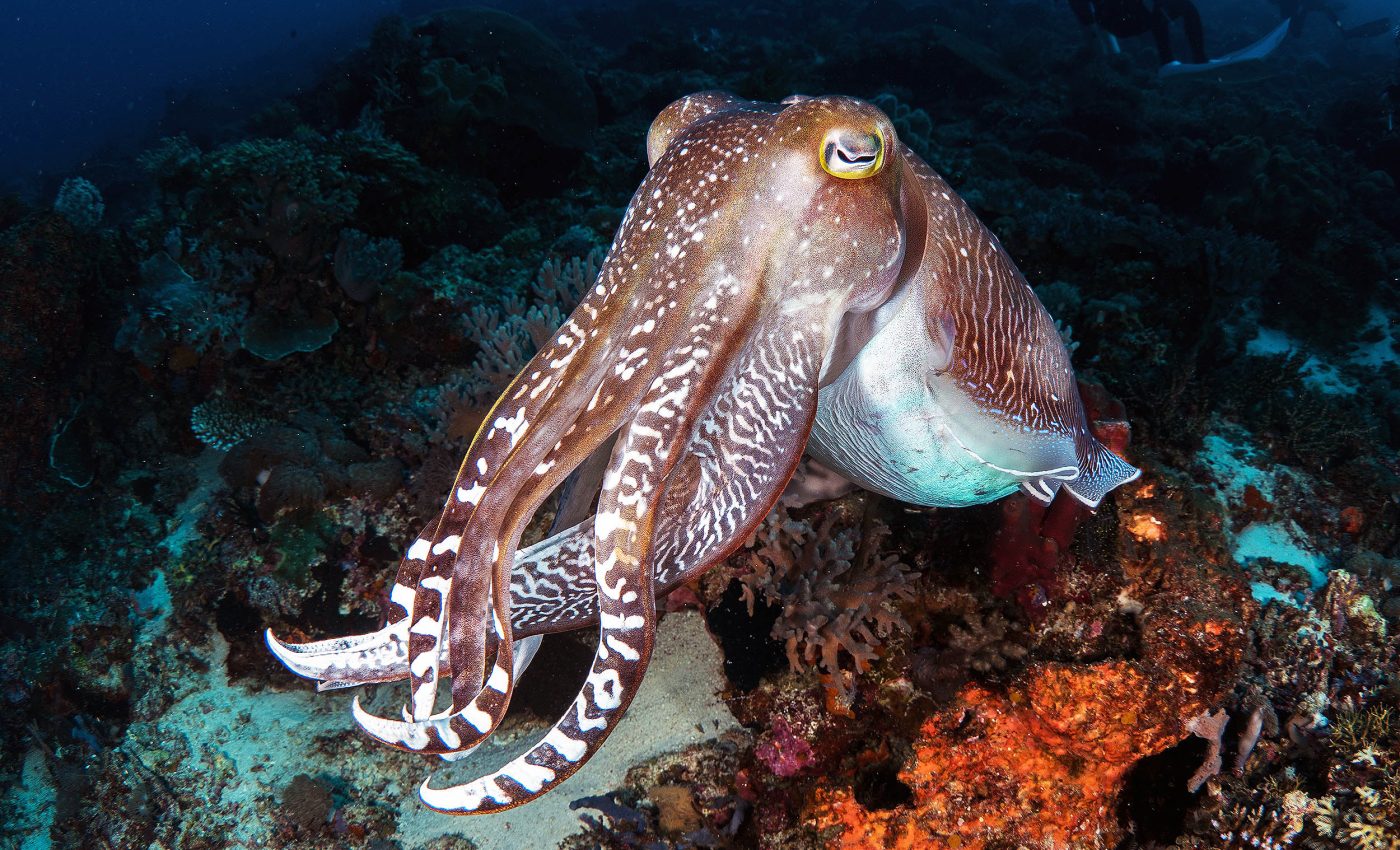
Squids dominated ancient oceans 100 million years ago
When we imagine the ancient oceans, we often picture massive reptiles and shelled ammonites dominating the waters. For decades, paleontologists believed these creatures ruled the Mesozoic Era without much competition.
However, a new study from Hokkaido University challenges that idea by revealing the unexpected dominance of ancient squids.
Understanding squids – the basics
Squids are remarkable marine invertebrates belonging to the class Cephalopoda, which they share with octopuses and cuttlefish. Their biology showcases some of nature’s most fascinating adaptations.
Squids possess a mantle cavity for jet propulsion, using rapid water expulsion to move with precision and speed. Their large, complex eyes rival those of vertebrates, providing excellent vision crucial for detecting predators and prey in the dimly lit depths.
Internally, they have a beak-like jaw and a radula for processing food, typically fish and crustaceans. One of their most iconic features is their ability to release ink, a defense mechanism that creates a smokescreen, enabling a quick escape.
Behaviorally, squids exhibit sophisticated camouflage through chromatophores – pigment-filled cells controlled by the nervous system – that allow them to change color almost instantly. Some species also display bioluminescence via symbiotic bacteria or light-producing organs.
Studying squids with fossil rocks
The research shows that squids were already dominant ocean predators 100 million years ago. This changes what scientists believed about life in ancient seas.
The team used a new technique to scan fossil rocks. They fully digitized the rocks in 3D without breaking them open. This helped them find over 1,000 fossilized beaks of ancient cephalopods.
Out of these, 263 were from squids. About 40 of those belonged to species that scientists had never seen before.
Squids rarely leave fossils
Squids have soft bodies that decay quickly after death. Unlike animals with bones or shells, they leave behind very little for scientists to find.
This makes it hard to trace their history through fossils. However, squids have tough beaks, which they use like jaws to catch and eat prey. These beaks are strong enough to survive over millions of years in rock.
Cephalopods, the group that includes squids, octopuses, and cuttlefish, have existed for about 500 million years. But it’s been difficult for scientists to figure out exactly when squids first appeared and how they changed over time.
Because full squid fossils are rare, researchers have had limited evidence to work with. This study changes that.
By finding hundreds of ancient squid beaks in 100-million-year-old rocks, scientists now have solid proof that squids were already present and had formed many different species. It fills in a major gap in our understanding of their ancient history.
Ancient squids dominated the ocean
The researchers found more squid fossils than those of ammonites and bony fish. That came as a surprise. Ammonites had shells and were thought to be the most successful swimmers of the Mesozoic era.
“In both number and size, these ancient squids clearly prevailed the seas,” said Dr. Shin Ikegami of the Department of Earth and Planetary Sciences at Hokkaido University, the study’s first author.

“Their body sizes were as large as fish and even bigger than the ammonites we found alongside them. This shows us that squids were thriving as the most abundant swimmers in the ancient ocean.”
Modern squids in ancient oceans
The study found that Myopsida and Oegopsida squids existed 100 million years ago. These two groups are still present today. Myopsida live near the shore. Oegopsida live in the open ocean.
Earlier theories suggested ancient squids evolved rapidly after the extinction of the dinosaurs. That extinction happened 65 million years ago. But this study shows squids had already diversified long before that event.
Early apex hunters
Associate Professor Yasuhiro Iba of the Department of Earth and Planetary Sciences at Hokkaido University led the study.
“These findings change everything we thought we knew about marine ecosystems in the past,” said Iba. “Squids were probably the pioneers of fast and intelligent swimmers that dominate the modern ocean.”
The new fossil data shows that squids had already taken important roles in the ocean. They were not just survivors.
They were already key predators in their ecosystems. Their numbers, size, and early diversity support that conclusion.
Rethinking ocean evolution
Squids are among the most active, adaptable, and intelligent invertebrates living in today’s oceans. They use complex behaviors, advanced movement, and sharp sensory skills to survive in both coastal and deep-sea environments.
Because of their importance in modern marine ecosystems, understanding their origins can help scientists piece together the long history of ocean life.
By studying when ancient squids first appeared and how they spread into different habitats, researchers can trace the development of major evolutionary traits. These include fast swimming, hunting techniques, and even early signs of intelligence.
Such insights also offer a clearer picture of how ancient marine ecosystems functioned and how they changed over time.
This new study provides strong evidence that many squid species were already established and thriving 100 million years ago – long before the mass extinction that ended the age of dinosaurs.
Their presence was not small or recent. Instead, they played a major role in shaping ocean life far earlier than we previously believed.
The study is published in the journal Science.
—–
Like what you read? Subscribe to our newsletter for engaging articles, exclusive content, and the latest updates.
Check us out on EarthSnap, a free app brought to you by Eric Ralls and Earth.com.
—–













